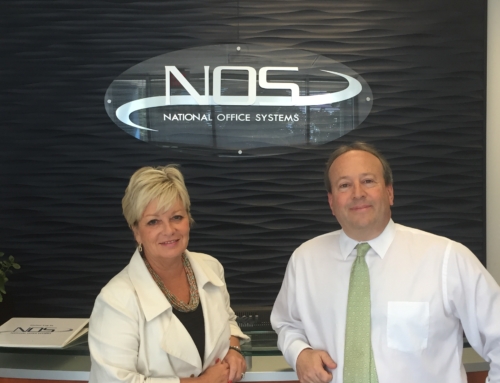At each IES Women in Sales monthly program, notes from the facilitated discussions are recorded and posted on the IES web site. The topic of the June 2016 IES Women in Sales meeting was Productivity. The Question posed was “Are you effective and efficient in your selling? If so, how do you know?”
Keywords or Phrases:
- Accountability
- Calendars
- Checklists
- Integration
- Perspective
- Prioritize
- Realistic
- Systems
- Time
- Time Management Tools
Something to think about …
Consider what being productive means for you. Does productivity in your work depend upon or sync up to what your company or management considers to be productive behavior and results?
It may be that you do not meet goals (revenue signed, call quota, etc.) but that may not mean that you have not been productive in your work. Do you agree with this statement or not? Why? What are examples of a person who is working productively but has not met set goals?
Selling is About …
- Managing work tasks and scheduling to maximize the amount of time available to be in meetings (phone or in-person) or at events focused on connecting and selling. Time management is one of the most essential skills to have, especially given that many sales professionals have the ability to freely ‘work’ their own schedules and appointments. And most would agree that this ‘ownership of one’s calendar’ is important but that such autonomy is can be both beneficial and detrimental. It requires a structured and realistic approach to balancing sales appointments, getting administrative tasks done, attending training, researching prospects, etc.
- Accountability to both professional and personal needs and requirements. This may require an approach to time and task management that allows for the balance between business, personal and family activities. People tend to think about productivity from the perspective of work but in our lives today there are many competing needs between our work, our family, social commitments and time taken for ourselves. Consider all when seeking to manage your time and efforts, and do not forget that it is always important to factor in what will refuel your energies, e.g. exercise, meditation, friends, quiet time, etc.
Another aspect of accountability is based upon discipline. To receive the greatest productivity benefit from any system or approach taken to manage days or weeks, it’s both important to ‘stick to it’ over time and to also honestly evaluate how you are doing, i.e. are you effectively and efficiently getting tasks done and meeting goals. In other words, hold yourself accountable to being accountable.
- Prioritizing what is important to get done, in rank order. Not all jobs or appointments are equally as important. Categorize what you must get done, when, and for or with whom. Put a priority against each using a simple ranking system, and then tackle each as the ranking indicates importance. It may mean considering if the task is important to you or your management or the client. It may mean considering if the task or appointment is important personally or professionally, or to immediate revenue goals or the longer term relationship with an account.
- Finding and using resources that produce the outcomes you most want. Using the right resources can be a very powerful component of your success as a sales professional. There are company-provided resources such as CRM systems, or inexpensive/free apps that can be easily obtained and customized for individual use. The important factor to consider is that whatever tool you use, it has to work for you and meet your defined needs, i.e. help you to accomplish what you’ve decided needs to get done.
This may mean that ‘old-school’ checklists are the answer to getting the most out of each day. Or it could mean that you set aside specific days of the week to be in the office, with no appointments, in order to get administrative tasks completed. Different calendars, smartphone apps, changing work locations, etc. can all be ways to help you find what works best for you to get the most out of each day or week.
Another point to remember when developing an approach to becoming more productive is that any tool, even those that are known to be highly effective, can fail anyone if there is not consistent and continuous use. Work to set habits or goals geared to consistent use of the productivity system or tool you’ve chosen.
- Being aware and accepting that you have done your best given the time and resources you have. This means that, whatever the outcome, you know that all of the options were deployed to convert a prospect, obtain the best contract terms, etc. In so doing, there’s awareness that perfectionism just isn’t possible and it’s crucial to acknowledge this in order to tackle the next sale.
Questions to Consider Further
- Is it as important today to have or be a part of a larger sales team, or have money for technology systems to be a successful sales professional?
- How much of a factor is your sales quota in driving your activities toward accomplishment? What defines ‘accomplishment’ for you?
- What tools do you use and are they providing the type of support you need to get your week’s activities done?
- How important is it for you to be aware of or feel a sense of accomplishment? Is it so important that you are willing to revamp your way of working to gain efficiency and effectiveness? If so, how would you do this?
- Have you switched to a new tool because you’ve read a great review or someone has mentioned how great a tool is? If you have, what results did you see, and over what period of time?
- Is social media important as a tool for the selling professional?
Topics for Further Discussion
- Social Media – Can/Should it be leveraged for better selling outcomes
- Networking vs. Selling
- Accountability Partners/Groups
Insights to Remember and “Own”
- Find a system or approach to time management and scheduling that fits your way of working.
- Prioritize to gain the greatest level of productivity.
- Systems and approaches only produce desired results if consistently and continuously used.
- Plan to be productive.
- Integrate (Balance) personal, social & professional commitments.






